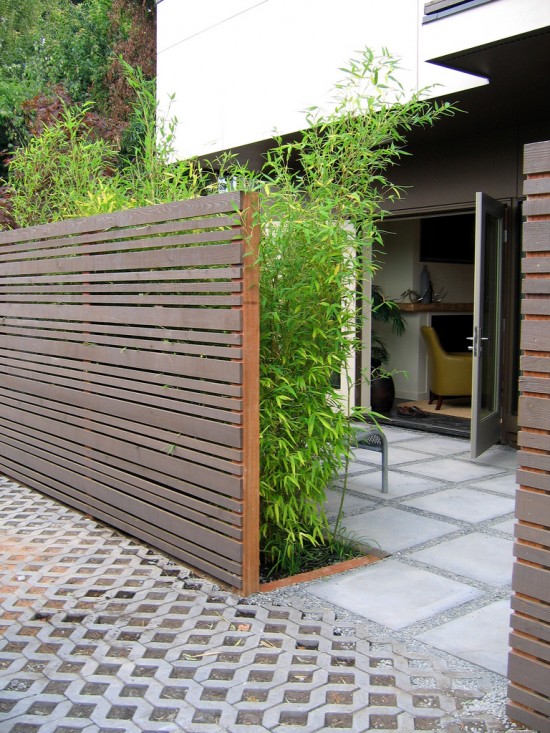All Categories
Featured

Picking the ideal fencing material is essential for attaining the balance of sturdiness, appearances, and functionality that fits your residential or commercial property. Timber, vinyl, and light weight aluminum are preferred options, each with distinct functions that provide to details demands. Here's a thorough consider the benefits and downsides of these three materials.
Wood Fencing. Pros:. Classic Charm: Wood uses an all-natural, timeless appearance that enhances numerous architectural styles. Customizable: It can be painted or tarnished in a range of designs and colors. Cost effective: Timber fencings are frequently less costly in advance than vinyl or aluminum. Eco-Friendly: As an eco-friendly source, timber is sustainable and biodegradable when sourced properly. Disadvantages:. Maintenance-Intensive: Requires routine staining, painting, or sealing to secure against climate and pests. Much Shorter Life Expectancy: Depending upon the type of wood and climate, it typically lasts 10-15 years. Vulnerability to Damage: Prone to decomposing, warping, and termite damages without proper treatment. Timber is perfect for property owners that value aesthetics and agree to invest effort and time in upkeep to lengthen its life.
Vinyl Fence. Pros:. Sturdy: Resistant to bugs, rot, and weather, plastic preserves its structure in extreme problems. Reduced Upkeep: Requires little maintenance beyond occasional cleansing. Long Lifespan: Vinyl can last 20-30 years without substantial wear or damages. Flexible Styles: Offered in various shades, structures, and styles, including options that simulate wood. Cons:. Costly Setup: Vinyl fences are extra pricey to set up compared to wood. Brittle in Winter: Plastic can fracture in extreme cold climates. Hard to Fixing: If harmed, whole sections might require substitute, which can be testing to match. Plastic fence is a terrific selection for those focusing on long life and marginal maintenance, even if it features a greater ahead of time expense.

Light Weight Aluminum Fencing. Pros:. Rust-Resistant: Aluminum does not corrosion, making it ideal for damp or damp locations. Light-weight however Solid: Offers toughness without being extremely hefty, which streamlines installation. Low Upkeep: Needs little more than cleaning and occasional repainting. Durability: Light weight aluminum fencings can last for decades without substantial degeneration. Elegant Layouts: Usually used for ornamental purposes, aluminum includes refinement to any kind of residential or commercial property. Disadvantages:. High Initial Price: Aluminum fences are among the a lot more pricey choices. Limited Privacy: Usually designed with open spaces, they do not block sights or noise. At risk to Damages: While sturdy, light weight aluminum can be dented or curved with heavy impact. Aluminum is ideal matched for those that want a durable, trendy fence and don't call for total privacy.
Making the Right Choice. Each material has its weak points and staminas:

Timber is excellent for typical looks and eco-conscious purchasers who don't mind upkeep. Plastic functions for homeowners seeking a weather-resistant, low-maintenance remedy. Light weight aluminum is a long lasting, ornamental alternative for those who desire elegance and long life. Consider your top priorities-- whether it's cost, look, upkeep, or privacy-- and seek advice from a fence expert to pick the material that ideal fulfills your demands. A well-selected fence will boost your home for several years to come.
Latest Posts
Contact Us: Call Us Today for Top-Quality Auto Fixes & Maintenance in Montclare
Published Apr 21, 25
2 min read
Meet Our Vision Center South Optometrists – Your Expert Eye Care Team
Published Apr 21, 25
2 min read
Improve Your Hyundai Ownership with Ron Marhofer Hyundai's Unique Programs
Published Apr 20, 25
1 min read
More
Latest Posts
Contact Us: Call Us Today for Top-Quality Auto Fixes & Maintenance in Montclare
Published Apr 21, 25
2 min read
Meet Our Vision Center South Optometrists – Your Expert Eye Care Team
Published Apr 21, 25
2 min read
Improve Your Hyundai Ownership with Ron Marhofer Hyundai's Unique Programs
Published Apr 20, 25
1 min read